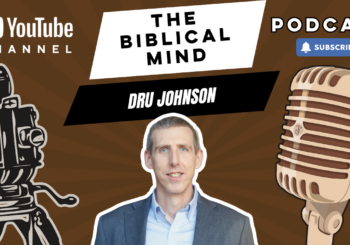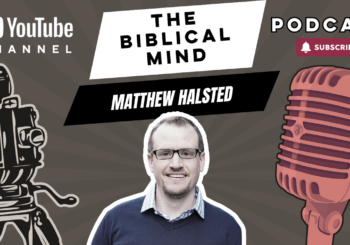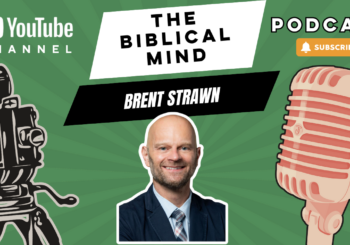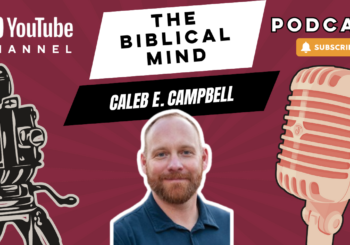Instead of Fearing Loss of Political Power, Christians Should Consider the Daniel Option
Evangelicals love a Good Samaritan story. But we might not be inclined to integrate politics and religion by imitating the Samaritan’s self-sacrifice when we vote.
In a recent LifeWay Poll poll, 61 percent of self-identified evangelicals said they hoped their presidential vote would most benefit “people nationwide who are like me” or “me and my family.” Non-evangelicals were 9 percent more likely to identify “people who our country has failed” as those they most hoped to benefit.
Enjoying this article? Read more from The Biblical Mind.
We might argue that by honestly advocating our specific vision of the good, we’re actually pursuing the common good for everyone. But evangelical political self-interest occasionally leads us to advocate privileges for ourselves that we’re reluctant to extend to others. We’re more likely than other voters to demand religious freedom, but also more likely to support President Donald Trump’s temporary ban on travel from Muslim-majority countries and dramatic reduction in the resettlement of Christian refugees fleeing persecution. Even acknowledging the differences between immigration/refugee policy and religious liberty, perhaps we can still understand why evangelicals are often accused of saying “religious liberty” but meaning “religious liberty for people like us.”
The resulting political disputes in the church display a failure of political discipleship. Resolving such disputes begins with listening carefully to Scripture.
The life of God’s people is intrinsically political in a way that far exceeds a narrow definition of politics as political parties and elections.
For many evangelicals, though, Scripture’s political witness begins and ends with Romans 13:1: “Let every person be subject to the governing authorities; for there is no authority except from God.” From this perspective, being a political disciple means submitting to the powers-that-be.
Other evangelicals turn to Revelation’s depiction of Rome as a monster that must be cast down. For them, political discipleship means identifying the idolatry of the powers-that-be and resisting them.
The problem with basing our entire approach to politics and religion on either of these texts is not the passages themselves. Both are essential for a fully biblical account of political discipleship, and not least for understanding how the life of God’s people is intrinsically political in a way that far exceeds a narrow definition of politics as political parties and elections.
The problem is that both texts were written to Christians who had little to no direct influence in their community’s political process, while evangelicals wield significant power in ours. If we want to know how to seek the welfare of the community through voting, lobbying, or marching in protest, we’ll be well served by also engaging stories in Scripture about God’s people participating in the politics of foreign nations.
The “Joseph Option”
If we’re looking for saints who gained direct political influence in the societies of their day, our first stop is the story of Joseph. At first glance, he offers the perfect model for faithfully integrating politics and religion. He demonstrates moral character (39:10) and sees God working through his political influence to save many lives (50:20).
But before we go all in on the “Joseph Option” for Christian political engagement, we need to give Joseph’s famine relief program a closer look. Doing so may help us discover how we can imitate Joseph’s successes, while avoiding his mistakes.
First, Joseph gathers “all the food” of the good years (41:48). When the famine hits, he sells that grain back to the Egyptians until he has gathered “all” their money. When they run out of cash, Joseph allows them to trade their flocks and herds for grain. Finally, Joseph buys “all the land of Egypt” and even the Egyptians themselves for Pharaoh (Gen 47:13–26).
Though Joseph might argue that “desperate times call for desperate measures,” the narrator subtly shows us that he had alternatives.
Some scholars suggest we shouldn’t impose our modern discomfort about any of this on the text.1See Wenham, Genesis 16–50, 400, 452, and especially Speiser, Genesis, 353. But Scripture itself raises concerns. For starters, the Pentateuch sought to prevent the permanent debt-servitude and land concentration Joseph accomplishes for Pharaoh. Jacob Milgrom even argues that the descent into poverty described in Leviticus 25:25–55 alludes to, and implicitly condemns, the way Joseph helps Pharaoh permanently capitalize on the Egyptians’ suffering.2Jacob Milgrom, Leviticus 24–27, 2192, 2228.
Though Joseph might argue that “desperate times call for desperate measures,” the narrator subtly shows us that he had alternatives. The immediate prelude to the story of Joseph’s austerity measures is the record of his quite different approach to his own people. Joseph provides for his family’s “little ones” by giving them land (47:11–12). He provides for Egyptian “little ones” by taking land from their parents (47:24). Joseph acquires all the livestock of the Egyptians for the Pharaoh only after ensuring that some of his brothers have jobs overseeing those royal herds. The only Egyptians who get an exception to Pharaoh’s land grab are the priests, including, presumably, the priestly family Joseph himself had married into.3See Janzen, Genesis 12–50, 179–81.
The Joseph Option is starting to sound eerily familiar. He stands squarely with those whose primary political goal is to improve the plight of their own. Evangelicals may cite Romans 13, but we’ve taken Joseph as our patron saint.
Students of Scripture know this doesn’t end well. Joseph’s success at helping Pharaoh gain power comes back to haunt his descendants. The Pharaoh who “knew not Joseph” turns the tools of exploitative economic policy against God’s people.
This explains the curious reference to the good land Joseph gets for his family as the “land of Rameses” (Gen 47:11). Elsewhere, the text calls this land Goshen, since Rameses refers to a city that hadn’t been built yet in Joseph’s day. But here Genesis uses this anachronism intentionally to remind readers that one day the political tables will turn.4See Matthews, Genesis 11:27–50:26, 848. Instead of gaining good land through the skillful manipulation of food surpluses, Joseph’s enslaved descendants will be forced to build bigger and better storage cities, including the city of Rameses (Exod 1:11).
The message is clear: live by the political sword, die by the political sword. Build your tribe’s kingdom in the land of Goshen through exploitative, self-serving politics, end up as slave labor building somebody else’s kingdom in that same land later on.
I don’t think Scripture vilifies Joseph, and neither should we. All biblical characters are mixed bags, morally speaking, and there’s a lot to like about Joseph. Nor should we overlook the suffering he himself experienced in Egypt. He was well acquainted with the injustice and fear faced by immigrants the world over. Even with hindsight’s 20/20 vision, the story is more tragic than tyrannical.
The problem is that this political tragedy repeats itself in our own failures. But what’s the alternative?
The “Daniel Option” for Integrating Politics and Religion
The book of Daniel begins with stories about Daniel and his friends’ lives in Babylonian captivity. Like Joseph, they find themselves violently taken from their homeland and forced to serve a regime they had suffered under. Like Joseph, they nevertheless thrive in that service. But their political witness and discipleship diverge in significant ways.
First, Daniel frequently prays and fasts, both in crisis and as a daily ritual. While Joseph talks about God, Daniel is willing to die rather than relinquish his practice of daily talking to God.
Second, Joseph embraces an almost complete assimilation into Egyptian culture and society. He accepts an Egyptian name, marries the daughter of a pagan priest, and claims to practice Egyptian divination. By the time his brothers show up, he looks like an Egyptian, talks like an Egyptian, and eats like an Egyptian.
Daniel and his buddies, on the other hand, accept Babylonian names, but refuse imperial food. Though there was no rule that required this, Carol Newsom suggests that resisting total assimilation required them to draw the line somewhere.5Newsom, Daniel, 48. Their communal process of discernment allowed them to decide where seeking the good of the city ended and political idolatry began.
Third, Daniel’s political witness requires him to risk his life to confront the political authorities, both for his own sake, and for the sake of others. He tells Nebuchadnezzar to his face that his kingdom, and all the ones to follow it, will eventually be smashed to dust by the kingdom of God. In another confrontation, Daniel offers Nebuchadnezzar advice as to how to extend his reign and Make Babylon Great Again: “Atone for your sins with righteousness, and your iniquities with mercy to the oppressed.” Daniel dares to confront the oppressive policies of his imperial boss, and to pursue the kind of justice enshrined in Israelite law on behalf of the entire community. Whereas Joseph’s actions gain him the praise of Pharaoh, the unexpected result of Daniel’s daring political witness is the pagan king’s praise of the one true God.
Are we communally discerning and debating when to refuse the empire’s food, even when it looks so good? Even when refusing it seems like political suicide?
Daniel, I suggest, offers us an illustration of what faithful political witness looks like when we’re given the opportunity to influence the political process directly. What might it look like for the church to embrace such political discipleship today?
First, the kind of political discipleship Daniel demonstrates doesn’t happen by accident. Daniel and his friends became political disciples through moral and spiritual disciplines, including prayer, fasting, studying Scripture, and discerning together when to cooperate with political power, and how and when to resist it. Daniel’s story helps us to ask: Do our moral and spiritual disciplines invite us to pledge our primary allegiance to God alone? Are we communally discerning and debating when to refuse the empire’s food, even when it looks so good? Even when refusing it seems like political suicide?
Second, God gives Daniel the ability to see past the political propaganda and discern the idolatrous tendencies of every political system.
Nebuchadnezzar, for example, looks like the king of the universe. But the dreams and visions God enables Daniel to interpret for Nebuchadnezzar reveal a different picture. At best, he is a shiny statue waiting to get smashed by God’s kingdom. At worst, he’s an idolatrous tyrant who learns that if you act like a beast long enough, God might just turn you into one.
In the second half of the book, Daniel receives visions depicting future political powers as terrifying monsters that devour and destroy. These visions point to times when there would be no possibility of cooperation between God’s people and pagan political powers. Some readers feel these chapters contradict the rosier picture of Daniel prospering under and even instructing pagan kings in the first half of the book.6Many scholars identify the two halves of the book as representing the views of two different communities whose perspectives may be ultimately irreconcilable. But as will become clear, I think this misses the way the tension between the two halves of the book is actually essential to all political reflection and action.
Daniel’s visions point to times when there would be no possibility of cooperation between God’s people and pagan political powers.
But perhaps this tension is part of the point. Perhaps it’s only by remembering the relentless propensity to idolatry and oppression of all political power that we can discern the difference between faithful political witness and selling out. If so, then perhaps Daniel can help us avoid the temptation to downplay the idolatrous propensities of the folks on our side of the aisle.
Indeed, Daniel reminds us that faithful political witness includes criticizing the hell—literally—out of our own political team. If that means, for example, Republican-voting evangelicals confronting the party’s dehumanizing attacks on immigrants and refugees, it also means, for example, Democrat-voting evangelicals confronting the party’s refusal to defend the lives of the unborn.
But Daniel’s visions of monstrous political regimes also guard us against false equivalencies, against pretending that each and every politician or political group proves equally amenable to Christians with a good head on their shoulders. The vision in Revelation—of a government so evil that the only possible political counsel was to stop sleeping around with the empire and celebrate its future destruction—drew deeply from Daniel’s visions. While Daniel’s political discipleship shaped him to seek God’s kingdom in politics whenever possible, it also prepared him to recognize when political regimes had become so idolatrous and violent that participation was no longer a faithful option.
Finally, Daniel’s story can help us cultivate a peculiar kind of political hope. Even Nebuchadnezzar can change. He can even learn a thing or two about the kingdom of God, and that is good news for everybody. At the same time, such political success is short-term and provisional, at best. Even when the empire learns something (Daniel 2), it soon forgets it (Daniel 3), and so on and so forth, forever and ever, amen!
While we’re called to work and hope for short-term political change, Daniel reminds us that our final political hope is tied exclusively to God’s ultimate triumph over every human kingdom. This victory comes solely from God and outside the control of any human power; the stone of God’s kingdom is cut out by no human hand (Daniel 2:45).
The task of becoming faithful political disciples is the work of a lifetime. If the evangelical church fails to embrace that work, regardless of the outcome of our current election, I fear we will continue to get coopted by idolatrous political power Left, Right, and Center. So, let’s get to work. And as we do, may the entirety of Scripture—from Paul’s and John’s letters to the stories of Puah and Shiphrah, Esther and Jesus, and yes, Joseph and Daniel—shape us to love our neighbors and live as citizens of God’s kingdom.
End Notes
1. See Wenham, Genesis 16–50, 400, 452, and especially Speiser, Genesis, 353.
2. Jacob Milgrom, Leviticus 24–27, 2192, 2228.
3. See Janzen, Genesis 12–50, 179–81.
4. See Matthews, Genesis 11:27–50:26, 848.
5. Newsom, Daniel, 48.
6. Many scholars identify the two halves of the book as representing the views of two different communities whose perspectives may be ultimately irreconcilable. But as will become clear, I think this misses the way the tension between the two halves of the book is actually essential to all political reflection and action.
Subscribe now to receive periodic updates from the CHT.





